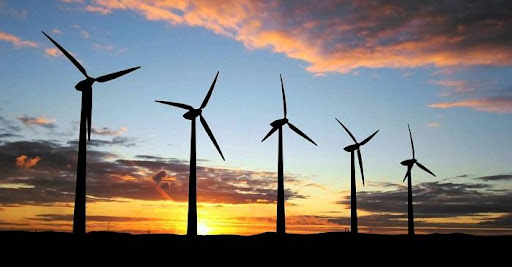
How do we get our share from the wind, the sun, and the water? – PROPOSALS
Azerbaijan must take these steps to become an alternative energy country
10 November 2023
Mirza Alakbar Sabir said this back in the early 20th century:
"The century tries to make us speak, we do not,
We do not frighten at the cannon fired.
Foreigners ascend in balloons for the shows,
Yet we still do not even ride in an automobile…
If we revisit the first and second articles we published earlier about Azerbaijan's alternative energy policy, we can express the final conclusion with the words of Sabir from 100 years ago. There is potential, there are experts, and the state has funds to allocate to this field, but Azerbaijan is far behind not only Europe but even neighboring Georgia in the green energy sector!!!
We know the reasons from the previous articles we recalled above. But how can the situation be improved?
Thus, in the last article on the subject by old.pressklub.az, we will try to find an answer to this question. Criticism alone does not show a way to solve the problem, but it indicates its existence. Alongside criticism, there should also be suggestions to correct the mistakes made. With the purpose of gathering such suggestions, unlike some 'relevant organizations,' we have approached experts in the field.
Our correspondent N.Z., one of the select experts on renewable energy sources in our country, who prefers not to be named for certain reasons, says that the government must first eliminate legal gaps.

"Especially with the recent focus, the alternative energy projects being implemented in the Karabakh region, primarily BP's projects, must be thoroughly examined. For instance, wind power stations are being built in that region. But is wind energy feasible in Karabakh? The area is more suitable for hydroelectric power stations, which have a lower risk factor. For Shusha, substations are more effective. Building large stations in Shusha is not advisable. Therefore, the government should increase the number of hydroelectric power stations to utilize Karabakh's hydroelectric potential of over 650 million kilowatt-hours."
N.Z. claims that the government can save the future of the alternative energy sector by making just two strategic decisions.
"Azerbaijan does not need mega-projects or mega-stations. The action plan in this field needs to be revisited. Experts in the Ministry of Energy (if they remain) must understand that green energy is considered profitable for local use, not for export. Currently, Azerbaijan's renewable energy resources are at least four times greater than what is being utilized. Therefore, the government should engage professional energy specialists and modify the export strategy to ensure maximum efficiency and profitability. For this, our experts in renewable energy sources should be involved in the government's 'green energy' program. Consequently, the export-oriented strategy should be transformed into a locally-focused strategy, and the new action plan should be entrusted solely to local experts. This is because local experts are familiar with the climate, geography, and social conditions of this area."
The chairman of the Public Union for Support to the Development of New Technologies, an expert in the study of alternative energy sources, Jeyhun Khalilov, also makes interesting proposals:

"The expert suggests that if greenhouses in agriculture are provided with heating energy in this way, entrepreneurs can be freed from both additional equipment costs for boilers and from household gas usage costs. He sketches a tested 'technical formula' for solving this issue: 'Hot water from beneath the Earth is sent to the greenhouse's iron piping system through exchangers working in a dual circuit system. The pipes, heating up to the required temperature, warm the air.'
'During the April battles in 2016, the Patriotic War, and the anti-terror operations conducted in Karabakh, I discovered an interesting detail when looking at the enemy posts captured by our army. The Armenians used various solar panels and small wind generators at their posts. This is clearly visible in the images. So why doesn't our army use these? In Eastern Zangazur, especially on the state border with Armenia, we have posts located at an altitude of three thousand meters above sea level. In the icy peaks of Murov Mountain and other areas, our soldiers serve under difficult conditions. I think these areas are suitable for the use of wind energy. If wind generators are used at our posts, not only will traditional energy be saved, but an alternative resource will also be created for the limited electrical and heating systems there.'
Nevertheless, the expert points out that the main deficiency in the country's 'green energy' sector lies in the educational segment, and suggests that reforms be carried out in this area:
'As per our 'usual' practice, any technological innovation is first brought into the country, and then a certain number of professionals are sent abroad to learn how to operate this technological equipment. The situation in the renewable energy sector is the same. However, instead of sending our experts to courses abroad, it would be more effective if those courses were taught in Azerbaijan and if universities were involved in this process. Achieving significant and lasting success on the account of experts brought from abroad is difficult. We can't send all energy specialists abroad for education. In short, renewable energy in Azerbaijan should be taught and researched as a practical field.'
Jeyhun Khalilov states that the number of Azerbaijani experts in this field is not at all small. However, he sees problems in their involvement in actual work.
"Our experts either go abroad or change their sector if they can't find a job in their field. We stay in touch with our experts overseas. They ask, 'If I return to the country, where will I work?' Four years ago, there was an answer to this question: The State Agency for Renewable Energy Sources. Unfortunately, the agency was abolished in 2019 and is currently, if I'm not mistaken, 'operating' under the Ministry of Energy. The ministry's approach to this field is quite clear."
The expert believes that there should be an institute in the country that continuously researches renewable energy sources and prepares new reports: 'This institute should be established as an independent agency and report to the President. If the government wants to succeed in the 'green energy' sector, it should entrust this field to its experts and take a step back. The laboratory of this institute should be open to innovative energy specialists or startups.'
The list of such proposals can be extended. Experts claim that their implementation can lead to a significant leap forward in the 'green energy' sector of the country. However, the likelihood that these proposals will remain only on paper, read and then forgotten, may be even greater.
Azerbaijan is a country rich in oil and gas resources since ancient times. Yet, paradoxically, the majority of the population has not benefited from this wealth throughout history. Now, a century and a half after the first oil boom, the country's geography and climate are once again smiling upon its people. Even if they don't receive their share from oil and gas, they can now harness their share from wind, sun, and water in the form of energy. To achieve this, there's no need to 'discover America'. Simply desire, encouragement, support, and... proper management are sufficient.
Press Club













